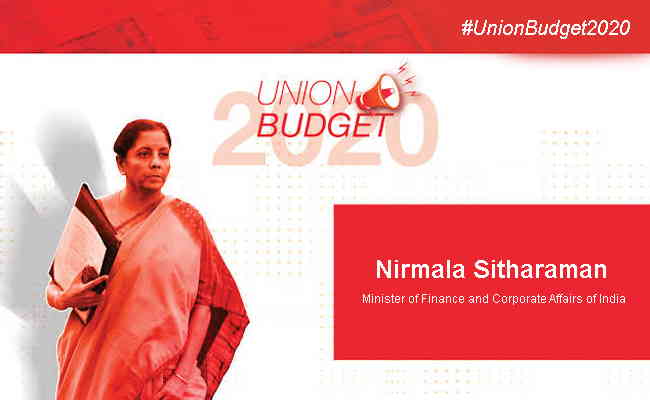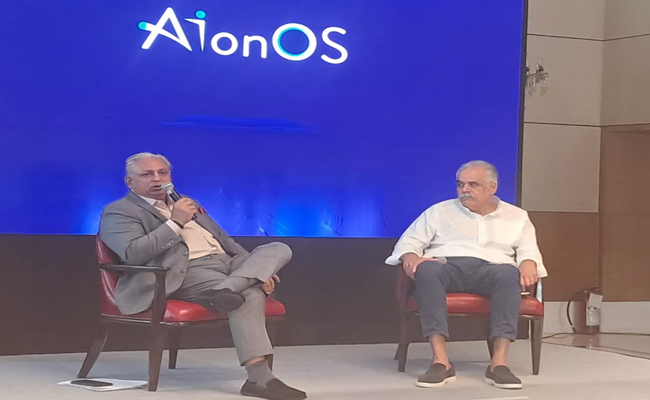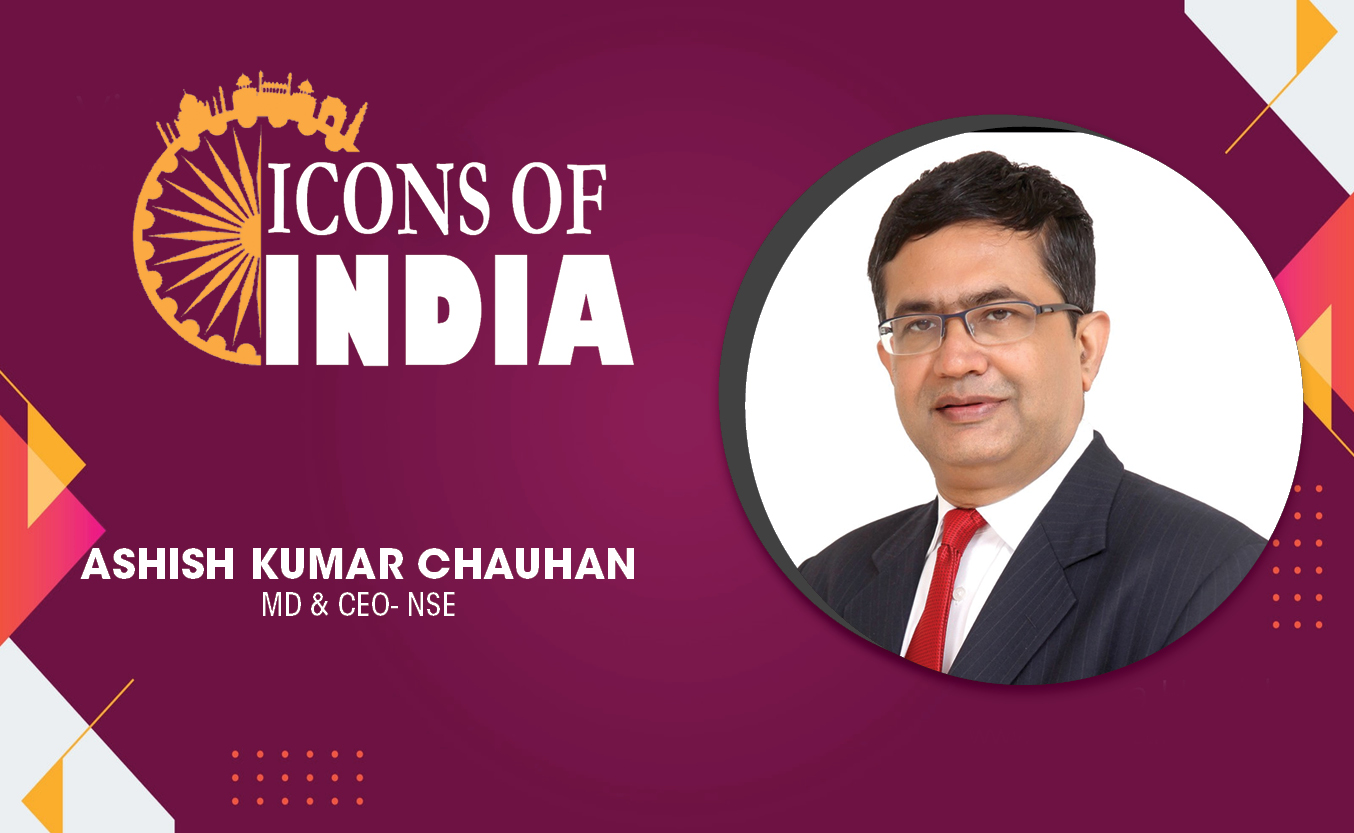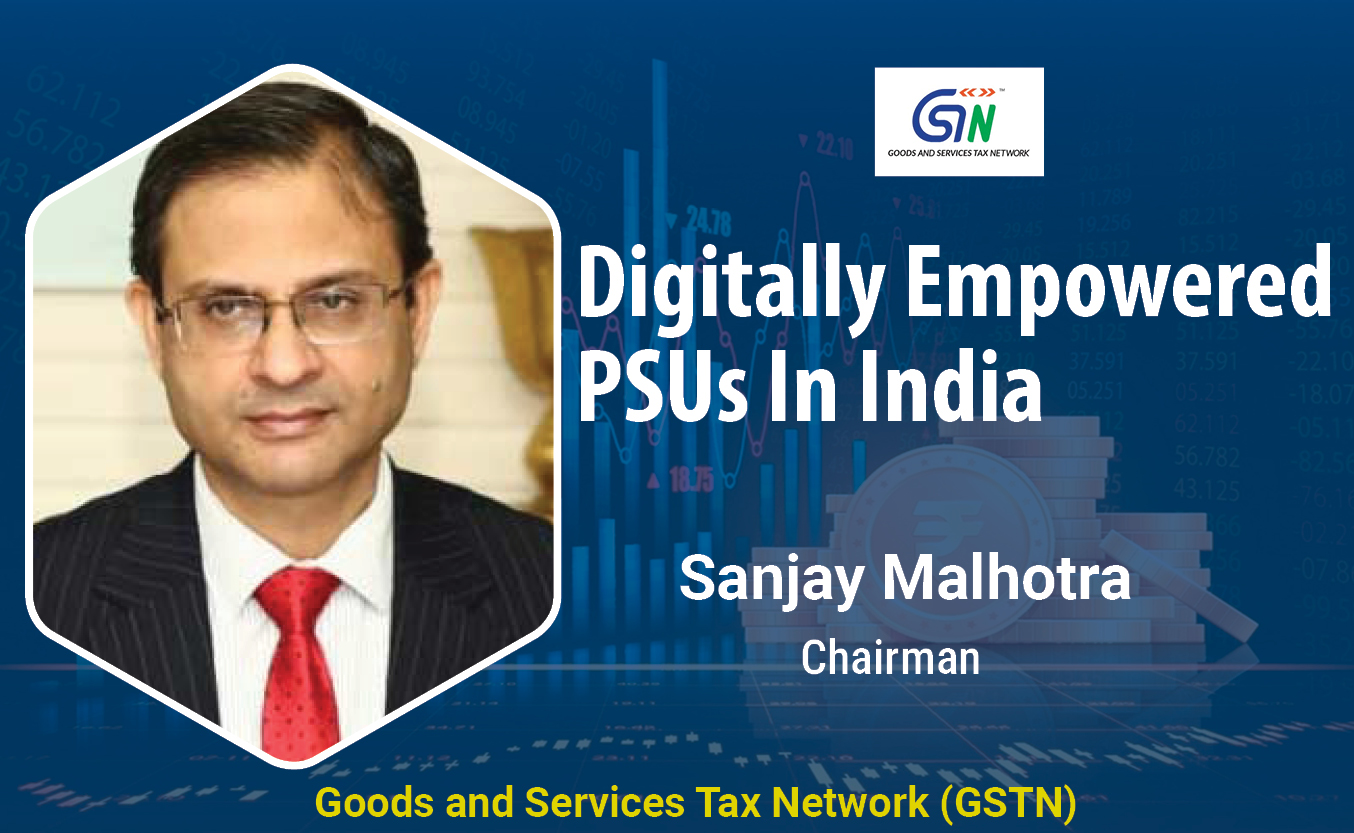Union Budget 2020
By MYBRANDBOOK

On 1st February, Saturday 2020 the Finance Minister Nirmala Sitharaman while delivering her second union budget speech, FM spoke for more than two hours and 20 minutes, the longest any Indian finance minister has done. The budget speech stayed in line with the government's long term growth vision pillared on three themes viz. an aspirational India, holistic economic development, and a healthy society. The finance minister also imposed health cess on import of medical equipment.
It shows she want to convince the parliament, but it was not shown if the finance minister had any clear roadmap to offer to extricate India out of the economic crisis . However, there is notable developments in infrastructure, rural logistics, education and healthcare sectors will create opportunities in the Indian real estate space. The policy on data centres was a key highlight and will make it a sunrise sector in India.
FM went big on agriculture and rural infrastructure. She set aside Rs 2.83 trillion towards agriculture and allied sectors, and unveiled a mammoth Rs 3.6 trillion scheme to address issues of water shortages. Major announcements for the housing sector were expected, and barring the extension on both the tax holidays and the time period for availing interest deductions in affordable housing, the highlights were relatively mute. All in all, the budget was balanced and the relaxation cascaded across tax slabs will spur consumption in the economy.
Experts speaks on, India’s GDP is not decreasing Continuously. Its Growth Rate is reducing continuously. In fact, the government had no choice but to ease the deficit target, as a slowdown in economic growth to an estimated 5% for 2019-20 crimped tax revenue. Its inability to garner enough money from disinvestment made matters worse, and it had to depend on higher dividends from the Reserve Bank of India to bridge the gap.
The fact sheet is in 2020-21, the FM and PM Narendra Modi, are banking on an extremely ambitious disinvestment target to bail them out and keep the fiscal deficit in check. In the last budget, the government had set itself a disinvestment target of Rs 1.05 trillion. The target has now been scaled down to Rs 65,000 crore; so far, however, the government has raised just Rs 18,100 crore. The reason being the taxation structure for the start-ups and disinvestment policy are not prudent.
The biggest question is on, if disinvestment was one big theme this year, the other major policy was on taxation as the finance minister sought to rationalise income tax slabs for individual taxpayers and put more money in their hands in the hope of kick-starting consumption. FM has introduced a dual taxation mechanism for individual taxpayers in which those opting out of tax exemptions will get taxed at a lower rate.
The most important is ,FM sought to lay the red carpet out for a section of foreign investors as it granted a tax exemption to sovereign wealth funds for investments in India’s infrastructure sector by specifically mentioned ADIA, the sovereign wealth fund of the Gulf emirate, as a beneficiary of the budget proposal though she didn’t explain the reason for doing so.
ADIA, the world’s third-largest sovereign wealth fund, has emerged as an active investor in India’s infrastructure sector in recent years. It invests in both publicly listed and privately held companies.
Sitharaman proposed full tax exemption to interest, dividend and capital gains income on investment made in the infrastructure and other notified sectors. The investments must be made before March 31, 2024 and have a minimum lock-in period of three years, she said in her budget speech. This will encourage investments in priority sectors by sovereign wealth funds of foreign governments, she said. Initial reactions from the industry were positive. “This is a big step to boost infrastructure investments in the short term,” said Vivek Gupta, partner and national head, M&A and private equity, tax, KPMG in India.
Fiscal Management
The government expects to revert to the consolidation path by budgeting a lower fiscal deficit target of 3.5% in FY21, while the FY20 fiscal deficit is seen at 3.8% (vs. earlier target of 3.3%)
The attainment of FY21 fiscal deficit target hinges on realizing record high disinvestment target along with substantially higher telecom revenue
Key Focus Areas
The Budget takes forward the thrust on reviving rural demand and supplements it with sectoral incentives for Electronics, Exporters, Textiles, MSMEs, Start-Ups, and Affordable Housing
The divestment target for FY21 has been set at INR 2.1 lakh crores as against the FY20 target of INR 0.65 lakh crores
The government has proposed to sell a part of its holding in LIC by way of Initial Public Offer (IPO)
For Individuals
Relaxed tax slabs proposed for those earning up to INR 15 lakhs a year (optional)
Assurance on safety of deposits in Scheduled Commercial Banks and increase in Insurance Coverage for Bank deposits from the existing INR 1 lakh to INR 5 lakhs per depositor
For Corporate
FPI limit for corporate bonds to be increased to 15% from the existing 9%
Dividend Distribution Tax (DTT) to be abolished
Eligibility limit for NBFCs for debt recovery under SARFAESI Act to be reduced from INR 500 crores to INR 100 crores, and the loan size eligibility (for SARFAESI Act) to be reduced from INR 1 crore to INR 50 lakhs
The list of items that will become costlier:
Footwear
Imported Wood
Imported Metal Furniture
Electrical Appliances
Stationery
Imported Toys
Imported Electric Vehicles
Imported Mobile Phones
Imported Household items
Cigarettes
Imported Ghee/Butter/Oil/Cheese
Imported Walnuts
Wall fans
Shimmed milk
Chewing gum
Dietary Soya Fibre
Isolated Soya Protein
Combs, Hairpins
Curling grips, Hair Curlers
Food grinders,Ovens,Cookers
Cooking Plates,Grillers & Roasters
Coffee & Tea Makers
Toasters
Rubies, Emeralds & Sapphires
Rough Coloured gemstones
List of items that will become cheaper:
# Certain Imported Military Equipment
# Some India Made Mobile Components
# Newsprint
# Textiles, yarns and fibres
At the post-Budget press conference, Finance Minister Nirmala Sitharaman exuded confidence in being able to reduce the fiscal deficit via increased revenue generation.
Indian markets fell sharply today as Budget 2020 announcements failed to live up to the expectations of the Street. The Sensex tumbled 987 points or 2.4% to 39,735. On the NSE, the broader Nifty50 index slumped 2.6% to 11,643. Among the Sensex stocks, ITC fell 7% after the government proposed an increase in excise duty on tobacco. Other top losers in the Sensex pack included L&T, HDFC, SBI, ONGC, ICICI Bank and IndusInd Bank that fell between 4% and 6%.
Finance Minister Nirmala Sitharaman today revised the country's fiscal deficit target to 3.8% for the current fiscal year, from an earlier target of 3.3%. The finance minister also pegged the fiscal deficit target for the year 2020/21 at 3.5% of the GDP. Sensex crashes 1000 points after Budget, investors lose ₹3.6 lakh crore.
Industry reactions on the Union Budget 2020-21
 Vijay Sekhar Sharma , Founder- PayTM
Vijay Sekhar Sharma , Founder- PayTM
Very happy and thankful to ESOP related changes done by the Finance Minister madam, she has beautifully defined and sorts out many issues.
 Dr. Jaijit Bhattacharya , President, Centre for Digital Economy Policy Research
Dr. Jaijit Bhattacharya , President, Centre for Digital Economy Policy Research
The budget has very large outlays for traditional infrastructure such as roads, ports, digital infrastructure, social infrastructure, waterways, airports, agriculture etc. But what is unique is significant outlays for preserving and studying culture and history, including large number of museums and a national institute of excellence for study of culture and history. Also, the focus brought in on new technologies such as quantum computing, is much welcome. Introducing a taxpayer's statute is also most welcome. However, more was expected in terms of tackling the continued credit squeeze and slowing of the economy.
Nikhil Arora, VP and MD, GoDaddy India
The Union Budget 2020 is a reflection of the Government of India’s vision and commitment towards delivering an inclusive growth. The proposed reforms especially those focused towards MSMEs and startups such as provision of seed funding for early-stage startups and setting up of a portal based investment clearing cell, will further help to bolster growth of independent ventures in India. Big announcements like deferred payment of ESOPs, as well as the creation of an e-market place for MSMEs, are also laudable steps by the Government towards uplifting the overall entrepreneurial spirit in the country. We also believe that the proposed allocation of INR 99,300 for education and the allocation of INR 3000 for skilling initiatives, can be instrumental in delivering better educational infrastructure and innovation. As India gears up to chart the next chapter in its strong growth story, we at GoDaddy continue to work in collaboration with the Government and our partner ecosystem, to help entrepreneurs and small businesses grow their ventures online, with our easy-to-use and affordable tools and solutions.
Vikas Jain, Senior Research Analyst, Reliance Securities
National Infra pipeline to remain in focus for the development of various projects. Key infra players like LT, KNR will benefit. FMCG Index rallies off its 100 DMA Emami, Hindustan Unilever, Dabur, Tata Global are set to rally further.
Pinarayi Vijayan, Kerala Chief Minister
Kerala Chief Minister Pinarayi Vijayan slammed the union budget, saying that it would neither help strengthen the economy nor ensure social security or development, but only further increase inflation and unemployment in the country. All the legitimate needs of the southern State were completely ignored in the budget, though Kerala had submitted a detailed memorandum on its long pending demands.
Dr. Deepak Kumar Sahu, Editor-in-Chief- VARINDIA
India’s plan to invest Rs 8,000 crore (~$1.12 billion) over the next five years in the National Mission on Quantum Technologies (NMQT) is a step in the right direction which will augment the industries dependent on these future technologies. India’s plan to come up with five new smart cities further solidifies its stance of a sustainable and citizen centric future which I am sure will elevate the quality of life. It had many good things. Would have given it a 8/10 on a regular year. But this is not a regular year. The liquidity crunch and kick starting of economy should have been focused on and reversal of extra tax on super rich should have been reversed.
Rajan S Mathews, DG, COAI
We welcome the Government’s overarching positive theme for the Budget 2020-21, that includes enabling an aspirational India, through major fundamental structural reforms targeted at fostering healthcare, education, skill development, ensuring economic development for all and further a caring, humane and compassionate society. The Hon’ble Finance Minister Smt. Nirmala Sitharaman, emphasised on country’s growth and Digital inclusion will hinge on advanced technologies such AI, Robotics, Machine Learning, analytics, among others, which essentially relies on telecom infrastructure. However, while the Union Budget laid major emphasis on boosting domestic manufacturing of network products, mobile phones, electronic equipment, semi-conductors and healthcare products and has allocated INR 27,300 crore for the development of industry and commerce by 2021, it is disappointing that there were no announcements made regarding the rationalisation of levies and taxes currently imposed on the severely distressed telecom sector and telecom infrastructure is not taken into consideration that is going to build out the country. The Budget proposed that the New India will be driven by innovations, AI and computing where data will be the new oil and other significant initiatives such as linking of 1 lakh gram panchayat to the Bharat Net program by this year and an allocation of INR 6,000 crore in this regard, none of our key recommendation appear to have been taken into consideration. A financially healthy and robust telecom sector is imperative to support all these future forward initiatives. It is also disappointing to note that telecom was not given an infrastructure status even though a slew of crucial reforms has been announced on infrastructure. The telecom sector, which is the backbone of the country’s economy, did not receive significant support.
CP Gurnani, MD & CEO, Tech Mahindra
With a thrust on talent, technology and entrepreneurship, Budget 2020-21 is a promising budget in support of making India’s $5 trillion economy dream come true. It is heartening to see initiatives that are aimed at enhancing digital penetration in the country by making Fibre to the home (FTTH) accessible to 100,000 Gram Panchayats via Bharat Net, which will go a long way in bridging the digital divide. Also, the decision to build data centre parks for the private sector is another step towards making India a data economy superpower. Furthermore, strategic initiatives aimed at leveraging new-age technologies like the Internet-of-Things, machine learning, robotics, bioinformatics, quantum computing and artificial intelligence across sectors will further help in laying the foundation of a robust, digital economy.
Dr. Keshab Panda CEO&MD, L&T Technology Services
From a perspective of the engineering and technology services industry that thrives on innovation, the government’s move to re-revitalize the IP filing and protection process is a welcome step. Additionally the thrust on quantum computing as a key focus promises to further consolidate India’s position in the global digital transformation landscape. The announcement of proposal to set-up Data Centers is also a step in the right direction in terms of acknowledging the importance of data and data analytics. Overall, the budget puts the role of technology in limelight spanning across all the three focus areas as announced by the government namely aspirational India, economic development and a caring society.
P K Gupta, Chancellor, Sharda University
With umpteen focused initiatives like – FDI, emphasis on new skill development and entrepreneurship, launch of new online degree courses /apprenticeship programmes and allocation of Rs 99,300 crore for world-class education, Budget2020 will help position India as a global educational hub. We appreciate the launch of the ‘Study in India’ programme which will enable foreign students to apply for scholarships to study in India. Overall, we believe that this renewed push on providing quality education and enhancing the skills of our youth, will help India play a lead role in shaping the global economy in the future.
Farhan Pettiwala, ED & Head Development– India & South Asia, AKHAND JYOTI EYE HOSPITAL
In the Union Budget 2020, we welcome the increase in allocation of 69,000 crore for the health sector with 6,000crore in PMJAY Ayushman Bharat scheme, with special emphasis on viability gap funding for setting up hospitals in the 112 aspirational districts (PAN India). Welcome the announcement on converting existing district hospitals to medical colleges through PPP mode, there is indeed a huge shortage of doctors in poor state districts”
Takayuki Inaba. MD --NEC Technologies India Pvt ltd
The current budget proposals exhibit a determined approach of government to make India ready for new technologies. Rs.6000 crore allocation for the proliferation of technology to the lowest level of society by connecting 1 lakh gram panchayats through Fibre to Home connections for supporting basic social infrastructure is a welcome step. The vision of providing panchayat level public institutions with digital connectivity will help streamline the integrated development work and open big opportunities for several stakeholders in the country. Proposal to develop Data Center Parks throughout the country is another major step towards digitization and capitalizing data resource available with government agencies. This step will help analyze the data better and make a well informed decision regarding resource allocation for social development of a specific geography and demography. Allocation of Rs.8000 crore over 5 years for National Mission on Quantum Technology is another positive step towards taking the country to the digital era. All these efforts will promote the use of technology and digitization and play an important role in the overall development of the economy.
Sharad Sanghi, MD & CEO, NTT-Netmagic
As India's leading data center services provider, we welcome the government's proposal to roll out a policy enabling the private sector to build data center parks throughout the country. This move rightly acknowledges how integral data is to every sector of the economy at a very opportune time. Government initiatives like Smart Cities and Digital India, policies around data localization and the digitization of various industries such as financial services, e-commerce, media, and the manufacturing sector have fuelled the demand for the data center industry in India. We at NTT - Netmagic currently operate nine data centers in the country and have plans to double our data centre capacity in the coming months to meet the growing demand. The budget has also given a massive push to the digital economy recognizing how AI, IoT, 3D printing, drones, data storage, and quantum computing, etc., are all re-writing the world economic order. Overall, the budget is pro-startups and forward-looking in terms of growth across technology sectors.
Nitin Kunkolienker, President-MAIT
The emphasis on Mobiles, the largest import bill in electronics and ATMP is welcome. The government needs to include IT, Datacom, Medical and other sub-sectors of electronics. While the scheme is still in the works this will result in rise in exports from India.
Manu Jain, Global VP and India MD Xiaomi and Governing council MAIT
Government’s move on increasing the threshold for small business requiring audit from 1cr to 5cr, if cash transaction is less than 5%, is a welcome move. This will spur technology adoption by them which will further increase the demand for PCs and POS.
Rajiv Bhalla, Managing Director, Barco India
The 2020 Budget has been drafted around the key themes of talent, technology, entrepreneurship and sustainability and we applaud the Centre’s efforts at boosting the economy. The Hon’ble Finance Minister has maintained focus on tourism by announcing that iconic destinations will be connected by “corporate” trains like Tejas and with the plan to develop 5 archaeological sites into iconic sites. Five new smart cities have also been proposed and Barco looks forward to partnering with the Government in this direction.
Dr. Vivek G. Mendonsa , Director-Sales | LYNX_Lawrence &Mayo)
The budget 2020 is a holistic and integrated budget, focused on promoting the ‘ease of living’ for a common man and ‘ease of doing business’ for SMEs, MSME’s and corporate. With a clear thrust on projects that work keeping sustainability and optimum use of resources in mind, the budget outlines plans to strengthen infrastructure relevant for renewable energy, transport, IT and agriculture, and allied industries. Further, a plan to offer employment opportunities to India's young engineers, management graduates, and economists, in construction, operation & maintenance of infrastructure through the 'Project Preparation Facility’, and the mandate for urban local bodies will provide internships to engineers for one year at district and state level, the budget displays a long term vision to make India a youth-led economy.
Sorabh Agarwal, ED, ACE
"ACE welcomes the announcement of the budget on behalf of the Construction Equipment Industry. The budget 2020 is special in itself as the economy has seen a major dip in the last fiscal and the industries are expected to recover through this budget. The Construction Industry has absorbed a slump recently and is expecting to rebound its growth with the budget allocation of 2 trillion in the transport infrastructure. Prioritising and focusing the Public Private Partnership projects is another welcoming move for the Construction industry, this will significantly create the funding opportunities for the homegrown brands and generate employment opportunities in the sector."
Rajiv Kapoor, Vice President, India & SAARC, Cambium Networks
The Union Budget provides a major boost to the interests of broadband services enablers and aligned stakeholders as one of the major takeaways that evidently emerged was the fact of connectivity being at the core of all key pursuits planned by the government. Towards this, initiatives announced such as providing push to smart metering, setting up five new smart cities, establishing new data centres across the country and more importantly the allocation of Rs.6000 crore towards BharatNet to provide connectivity to 100,000 gram panchayats within this year itself, augers well for the telecom industry.
Mr. Dipesh Kaura, General Manager, Kaspersky (South Asia)
Government's growing interest in the use of Advanced technologies such as Artificial intelligence, quantum computing, etc was definitely seen as the base of the IT budget for 2020 and an interesting move for Digital India.In today's budget we saw the government allocating funds to make data centers across India which will also support their upcoming Data Protection Act. However we do hope that this budget will be majorly focused on protecting the stored data especially of sectors like BFSI and large enterprises that consist major quantity of critical data. As it was rightly said that Data is the new oil, it becomes increasingly important for a country like India to protect and secure their data moving forward and also invest in securing other vulnerabilities that may target India's critical infrastructures, banking and finance institutions and government bodies against the ever evolving cyberthreat landscape.
Sandeep Bhambure, VP and MD, India & SAARC, Veeam Software
The government’s announcement of setting up a policy to build data centre parks throughout India for digital connectivity and the allocation of Rs 6,000 crores for BharatNet is a big step towards a successful Digital India initiative. This will increase the adoption of technologies such as IoT, Analytics and AI; leading to an unprecedented amount of data generation. Data management and protection will play a key role to safeguard the citizen’s data from cyber-breaches. Additionally, the implementation of intelligent data management platforms will help achieve positive outcomes from the data.
Basavaraj Puttappa, Founder and CEO, Zeva Astras
"As per our expectations, the Budget 2020 has proposed a slew of measures to propel the economy towards growth. The government’s sustained push for tech innovation and entrepreneurship is encouraging from a market perspective. The Budget has particularly proposed a conducive environment for the start-up sector in India and these measures are sure to cement India’s position as a hotbed of startups. The market also stands to gain from the revised Income Tax structure as it indicates a higher disposable income in the hands of the common man. This could prove to be positive in terms of investments and could potentially boost the capital market.
Aditya Agarwal, Co-Founder, Wealthy
As a member of the startup community in India, it is exciting and welcome to hear our Finance Minister recognize startups as a bedrock of the economy and yto acknowledge our role in job and wealth creation. It is commendable that ESOPs will only be taxed on liquidation as opposed to exercise. This will serve as a lucrative incentive that helps attract and retain talent in our space. The move to remove DDT is another great proposal as it will make Indian equities more appealing for investors and also encourage FDIs. We are confident that these measures will lead to a boost in investments and consequentially quicken the economy.
Sanjay Jalona CEO&MD, L&T Infotech
Acknowledging the influence of technology in shaping new age economy is a distinct aspect of the Union budget. Focus on artificial intelligence and targets set for quantum computing is a step in the right direction to strengthen India’s position as a frontrunner in exponential technologies. From IT services perspective, it will be interesting to see if setting up more export hubs is encouraged by incentives for the industry that has been at the forefront of exports for the country.
KT Prasad, Country Sales Director, Zendesk India
"I believe the Union Budget 2020 will have a positive impact on helping further drive Indian businesses, given the current local and international market conditions. The startup sector will benefit greatly from the tax breaks, and the move to tax ESOPs on liquidation will encourage the retention of talent in the sector, poising it for continued growth on the global stage. We are happy to see the push for adopting AI and ML particularly in the healthcare sector, which will help boost access to services as well as quality of care for more people, and further infuse growth in the economy. It is also interesting to see that the government has invested Rs. 8000 crore to the National Mission on Quantum Technologies, which will ensure India remains a key global technology player. This move aligns and propels India into the future with an eye on data, communications, cybersecurity, and technology, and from Zendesk's position as a global Saas company, this is particularly encouraging."
Sunil Sharma, managing director – sales, Sophos India & SAARC
“The Government’s Union Budget 2020 is built on the bedrock of emerging technologies including Artifical Intelligence (AI), Machine Learning (ML), Internet of Things (IoT) and more. Initiatives such as building data center parks across India aiming to safeguard ‘data’, the most critical asset of organisations along with the digitisation of 100,000 Gram panchayat through its Bharatnet initiative will strengthen the digital fabric of the country. However, increased digital penetration brings along with it cybersecurity risks. As per a recent report, Indian IT managers detected 39% of threats on servers, 35% on the network, 8% on endpoints and 18% on mobile. Additionally, 90% of IT managers believe cybersecurity awareness and education among employees is a major challenge for organisations. That said, while we welcome the Governments proposed steps in strengthening the MSMEs that provide employment to millions of people, we need more impetus on building skilled cybersecurity professionals in the country. The government’s allocation of Rs. 3,000 crore towards skill development is a step in the right direction towards building India’s youth and economy.
Rajesh Uttamchandani, Director, Syska
We welcome the steps taken by the Government in the Union Budget towards boosting electronic manufacturing in the country. The electronic industry has huge potential both in terms of manufacturing in India and job creation and will provide a major impetus for growth. This will further enhance the exports of networked products. Another important step taken is the further push provided by the Government for its smart cities mission. It aims to create 100 cities with state-of-the-art infrastructure that includes intelligent lighting, Wi-Fi access points, leading to enhancement of the quality of life of every citizen while building efficient living spaces for future generations. As a company, Syska has been striving towards developing technology-driven, energy-efficient and affordable solutions that positively impact the lives of our customers. With India heading towards mass urbanization, we are aligned towards promoting sustainability, enhancing social development and creating new employment opportunities through rapid digital innovations.
Bishan Jain, Director, Goldmedal Electricals
The Union Budget 2020 has provided enormous opportunities for companies looking to set up manufacturing facilities in the country. The steps taken by the Government towards making India a manufacturing hub by providing impetus on electronics manufacturing in India will give a further fillip to the Government’s flagship Make in India initiative. Additionally, the budget also provides emphasis on making every district of the country an export hub, with the Government allocating Rs 27,300 crore for the development and promotion of industry and commerce in 2020-21. This initiative will enable Indian companies to develop the infrastructure and manufacturing capabilities required to build products that can be exported. We also welcome the Government’s commitment towards boosting emerging technologies such as internet of things, (IoT), artificial intelligence (AI), machine learning (ML), Analytics and the creation of a sustainable environment to combat climate change. As a company, Goldmedal Electricals has always been at the forefront of introducing innovative and sustainable solutions that make our planet not only smarter but also sustainable for future generations.
Priya Mahajan, Head of APAC Public Policy & Regulatory Counsel, Verzion Enterprise Solutions
“The Union Budget 2020, is encouraging , forward looking and would ensure the necessary boost to the Digital India Vision. The Budget duly recognises the transformational impact of emerging technologies such as AI, IOT, Big data, Cybersecurity, ML and Robotics on the economy . The digital growth momentum is steered further and India definitely has a key role to play in the global economy and future of technology and innovation. We believe that India has a unique success story and a step towards being a global technology leader. This budget definitely favours new age digital economy and we look forward to further growth in the sector”.
Bhavesh Gupta, CEO, Clix Capital
“Reduced NBFC eligibility for SARFAESI Act is a well thought move that will help the sector to grow. Allowing NBFCs to be a part of TReDS will improve MSME access to credit, coupled with reduction in personal income tax slabs should spur consumption leading to growth.”
Suman Reddy Eadunuri, MD, Pegasystems India
The government’s decision to announce measures through the three themes - Aspirational India, Economic Development and Caring Society covers the aspirations of all. This interim budget, has a fair impetus on the technology sector. We see acknowledgement of the role of AI, Analytics, IoT along with schemes to deploy these technologies in the public sector. The setting up of a digital platform for seamless application and capture of Intellectual Property Rights (IPR) moves us closer towards an era of enhanced public-private partnership where technology will play a decisive role.
The implementation of a policy to build data centre parks throughout the country is another welcome move which will help immensely in data management. As the 5th largest economy of the world with a vibrant startup ecosystem, the announcement to create more opportunities for entrepreneurs and setting up of an Investment Clearance Cell which will offer assistance in funding will boost the industry.
Ankit Jain, Assistant Vice President, Corporate Ratings, ICRA Ltd.
The budget emphasised the importance of creating a robust digital infrastructure and increasing connectivity across the country will provide greater opportunities to telecom operators and drive higher data offtake—especially in rural areas. A strong optic fibre network using higher technologies is essential for building the backbone of telecom connectivity in the country. Thus, the focus continues to remain on the connectivity of the gram panchayats through fibre. Moreover, the development of new technologies like machine learning, internet of things, artificial intelligence continues to remain the focus area.
The revised estimate (RE) of non-tax revenues from communication services for FY2020 stood at
Rs. 58,990 crore, which is 17% higher than the budget estimate (BE) of Rs. 50,520 crore and is higher than our estimates. The BE for FY2021 stands at Rs. 133,027 crore, 125% higher than the RE for FY2020. Despite deferral of spectrum payments due in FY2021 and FY2022, the higher BE for FY2021 can be attributable to some participation in 5G spectrum auctions and expectation of payments of AGR-related dues.
Chandrahas Panigrahi, CMO and Consumer Business Head, Acer India
This is positive budget overall from the technology focus point of view. We are pleased that the Government is allocating Rs. 8,000 crore for the National Mission on Quantum Computing and Technology. The government’s move on encouraging manufacturing of electronic equipment in India is also a big step as this would provide much needed impetus to technology and manufacturing sector, which has been developing capacities and generating employment opportunities. Also, more focus on technology such as Machine Learning, Robotics, AI will support the industry to grow and establish India as a robust ecosystem for technology and innovation.
Prakash Mallya, VP, and MD – Sales and Marketing Group, Intel India.
The Union Budget highlights the role technology-enabled innovation can play in leapfrogging the nation. From integration in priority sectors like agriculture and healthcare to a continued focus on smart cities, the first budget of the new decade clearly outlines the significance of a digital-first India in realizing the country’s potential. I am especially encouraged by the efforts to use artificial intelligence (AI) and machine learning (ML) to improve disease detection and pre-emption as part of the PM Jan Arogya Yojana. Such applications of emerging technologies combined with the focus on increasing the penetration of fibre connectivity in the nation have the potential to fundamentally impact the lives of millions in the coming years.
With the government’s target of a $5 trillion economy by 2024, Intel believes that technologies like AI, Internet of Things (IoT), and ML will continue to play a pivotal part in this journey. We look forward to further strengthening our work with the local ecosystem and with the government in enabling technology innovation and skilling India’s workforce to power the next wave of India’s digital revolution”
Leon Yu, Regional Head, India & South Asia, Asus
The Union Budget 2020 announcement has covered several pressing issues faced by the economy and is going to bring growth opportunities. All eyes would be on the manufacturing sector, with the FM proposing a scheme to encourage mobile phones, semiconductor packaging, and electronic equipment. The new scheme, Nirvik, is also going to offer respite for exporters, promising to settle refunds for electricity and VAT previously levied. Furthermore, the provision to bring digital connectivity to all public institutions at Gram Panchayat and allocation of INR 6,000Cr to bring fibre to home through BharatNet linking 100,000 Gram Panchayats in FY21 are also welcomed moves.
Vamsi Krishna, CEO & Co-founder, Vedantu
The vision of making education accessible to the farthest corner of the country will greatly benefit students. The allocation of budget to hone the skill sets of teachers and educators will positively impact quality learning and thereby provide a boost to the education sector. Additionally, the allocation of budget to BharatNet will also have a deep impact on skilling rural India as it has the potential to open up online learning to students and professionals from remote villages. With better bandwidth internet, a qualified teacher located in a metro city can impart LIVE online classes to students in small town India, where there’s a dearth of quality education. Technology will soon disrupt the entire concept of the classroom and make it an extremely personalized, one to one teaching-learning experience tailored for each mind.
Jitendra Chaddah, Chairman, IESA
“The vision for the semiconductor and electronics industry in the budget speech is encouraging. We feel this interim budget by Finance Minister is progressive and inclusive. It focuses on leveraging new technologies to build countrywide digital infrastructure, skill-building and drives growth by providing cost benefits for electronics manufacturing in India. The scheme to boost the intelligent electronics & semiconductor ecosystem by the manufacturing of mobile phones, semiconductor packaging and electronic equipment, assures more investment. We foresee the sustained incentives by the government to promote local manufacturing will fulfil local demand and also enable India to become an export hub for electronics.”
Sudhindra Holla, Director, Axis Communications, India and SAARC
“The budget set by the Finance Minister is focusing directly on three factors, namely Aspirational India, Economic Development, and a Caring Society. Delving into these three aspects, it has kept a keen eye on improving the transport and infrastructure by allocating Rs 1.75 lakh crore for these sectors. Furthermore, we support the keenness to develop more smart cities by allotting 5 new smart cities under the PPP model. With 100 new operational airports and high-speed trains both the aviation and railways will now see redevelopment programs to enhance the passenger travel experience. The idea of 100% exemption for sovereign wealth funds in infrastructure and other notified sectors with a minimum lock-in of three years is welcoming. We view it as a definite budget for the corporates who are driving the country’s growth and infrastructure development in both Tier 2 and Tier 3 cities.”
Gautam Seth, Joint-Managing Director, HPL & Electric Power Ltd.
The annual budget announced by the FM has given special impetus to the power and infrastructure sector and allocating Rs 22,000 crore for renewable and power sector is going to push for faster development and growth across sector. The announcement made by FM to replace energy meters with pre-paid smart meters will further help in complete digitization of the whole system and will help in bring about more financially healthier utilities. The FM has urged state governments to implement smart meters in the next three years and HPL being one of the leading manufacturer of smart meters sees this as a huge opportunity. In addition, the implementation of five Smart city projects in PPP mode will give more opportunities to the private companies.
Venkatraman G S, Chief Financial officer, Subex
"Budget 2020 continues focus on government driven infrastructure spends to revive the economy. Simplification of income tax rates optically looks attractive however given that the choosing lower tax rates means letting go of exemptions available, may not lead to large scale adoption by people. FM also indicates direction of govt wanting to move towards lower tax slabs and moving away from exemptions. Decision to invest Smart cities a good move should lead to eco system of companies working in this space growing their business. Decision of govt to decriminalize civil acts in the companies act welcome, should help in improving ease of doing business, environment"
Vikas Garg, Deputy CFO, Paytm
We see this budget as a good step in direction to become a $5 trillion dollars economy. As a technology player embedded in India’s technology ecosystem, we welcome the government’s vision to build Data Centre Parks in the country. The government’s focus on enhanced digital connectivity, and focus on emerging technologies such as machine learning and artificial intelligence, along with the allocation towards quantum computing are sure to provide a fillip to India’s economy.
Kushal Nahata, CEO & Co-founder, FarEye
We welcome the progressive budget by the government this year. The logistics industry has been a key focus for the government in the past few years and with the announcement of the soon to be launched National Logistics Policy- the industry is going to get a major boost. Allocation of Rs 1.7 lakh crore for transport infrastructure in FY21 and the move to monetize 12 lots of highway bundles of over 6,000kms before 2024 is welcoming news as it will positively impact freight movement and transportation expenditures.
The government’s focus on promoting disruptive technologies like AI and IoT is critical for the supply chain and logistics industry. It’s important for enterprises to leverage these technologies to improve operational efficiencies and keep margins wider. The government’s plan to bring out a policy for data center parks throughout the country will definitely empower the IT-services industry.


InterGlobe’s Rahul Bhatia and C.P. Gurnani together announce
In a move that is set to transform the AI landscape, Rahul Bhatia, Group M...

Download masked Aadhaar to improve privacy
Download a masked Aadhaar from UIDAI to improve privacy. Select masking w...

Sterlite Technologies' Rs 145 crore claim against BSNL rejecte
An arbitrator has rejected broadband technology company Sterlite Technolog...

ID-REDACT® ensures full compliance with the DPDP Act for Indi
Data Safeguard India Pvt Ltd, a wholly-owned subsidiary of Data Safeguard ...


Technology Icons Of India 2023: Harsh Jain
Harsh Jain is an Indian Entrepreneur, the co-founder and CEO of the In...

Technology Icons Of India 2023: Ashish Kumar Chauhan
Ashish works as the CEO of the National Stock Exchange (NSE). He is al...

Technology Icons Of India 2023: Roshni Nadar Malhotra
Roshni Nadar Malhotra is an Indian billionaire businesswoman and the c...


TCIL continues to strengthen India with its technology expertise
TCIL undertakes consultancy & turnkey projects in the field of Telecom...

Aadhaar: Architecting the World's Largest Biometric Identity System
The Unique Identification Authority of India (UIDAI) is a statutory au...

GSTN aims to integrate indirect tax ecosystem on a shared IT infrastructure
Goods and Services Tax Network (GSTN) has built Indirect Taxation plat...


TECHNOBIND SOLUTIONS PVT. LTD.
TechnoBind’s business model is focused on identifying and partnering...

SAVEX TECHNOLOGIES PVT. LTD.
Savex Technologies is the 3rd largest Information & Communication Tec...

NETPOLEON SOLUTIONS
Netpoleon Group is a Value-Added Distributor (VAD) of Network Security...